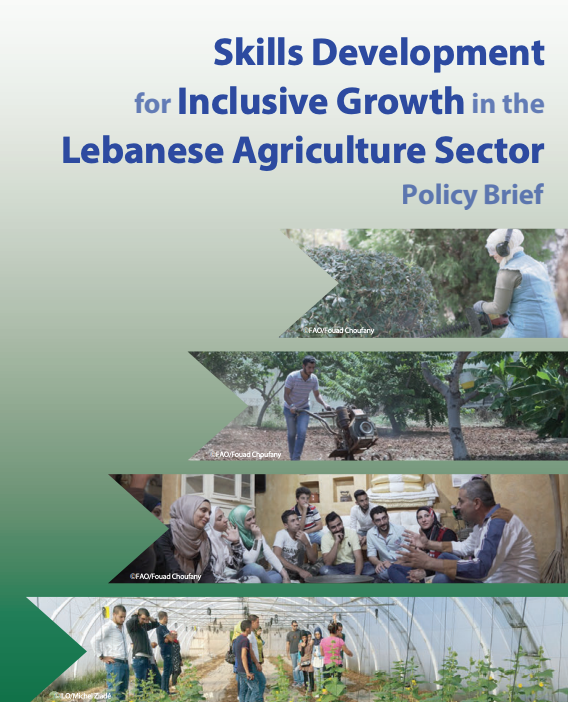Commissioned by the International Labour Organisation (ILO), this policy brief delves into the significant skills mismatch in Lebanon’s agricultural labor market, a critical barrier to the sector’s development. It pinpoints the discord between the training provided by agricultural technical schools and the actual market needs, highlighting issues such as insufficient on-the-job training (OJT) and a diminishing interest among youth in agricultural careers, which are exacerbating the mismatch. This discrepancy is notably apparent in key sub-sectors like crop and animal farming and crafts, where employers struggle to find adequately skilled workers at sustainable wages.
To address these challenges, the brief proposes a series of robust measures for the Ministry of Agriculture and other stakeholders to rejuvenate the technical and vocational education and training (TVET) system. Recommended initiatives include the introduction of work-based learning, innovative practices for small-scale farmers, and the adoption of new techniques to make agricultural education more appealing and relevant. It also emphasizes the need for upgrading educational infrastructure to better align with labor market demands and to encourage student engagement.
This policy brief, prepared by Triangle, forms a part of the strategic response outlined in the Ministry’s 2021-2025 strategy, aiming to develop a competency-based approach in teaching, learning, testing, and certification, alongside an apprenticeship framework to enhance the agricultural TVET system. These steps are designed to mitigate not only the skills mismatch but also broader socio-economic challenges such as poverty eradication, enhancing the social status of farmers, and managing rural-urban migration.
